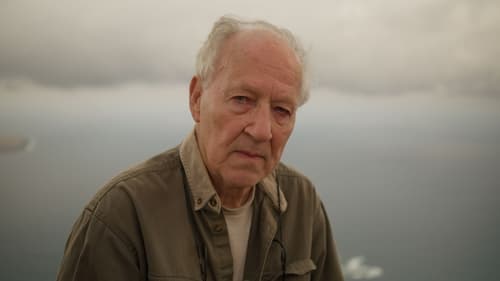
Self
“Nothing is typical for Werner, only the atypical is typical for him.” This is just one of many attempts to characterize Werner Herzog. Documentary filmmaker Thomas von Steinaecker spoke to actors, directors, directors of photography and producers who have worked with Herzog over his long career—including directors Chloé Zhao, Joshua Oppenheimer and Wim Wenders, singer Patti Smith and actors Nicole Kidman, Christian Bale and Robert Pattinson. We also hear from Herzog himself, with extraordinary anecdotes about film locations and shoots, his admiration for Lotte Eisner, and his eternal search for beauty. The interviews are carefully punctuated by archive footage of Herzog never seen before, iconic excerpts from his feature films and documentaries, and his cameos in cartoon series such as The Simpsons. Together they create a kaleidoscopic image of a radical visionary and dreamer, and of his very own “Werner World.”
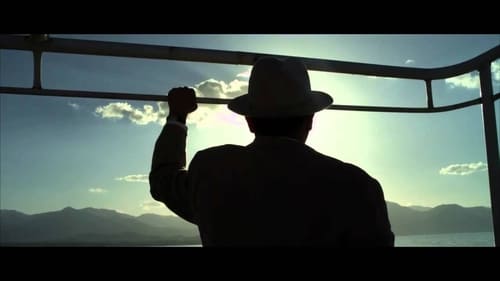
Cinematography
Saroyanland is a docu-drama focusing on the journey of famous writer William Saroyan to the birthplace of his Armenian family Bitlis, in Turkey in 1964. While retaking the same road, the film aims to understand Saroyan's unique attitude to belonging, witnessing the self-discovery of a man who followed the traces of his Armenian ancestors.

Director of Photography

Director of Photography

Cinematography
Berlin during the Nazi reign: Young music student Ursula is a talented musician and a fervent admirer of the "Führer". When she is asked to assist renowned composer Broch, who was ordered to compose a cantata for Hitler′s 50th birthday, it first seems like a dream fulfilled. Over the time, Broch and Ursula fall in love, and her relationship with the former communist gradually changes Ursula′s perspective on the realities of Nazi Germany. But falling in love with a Nazi means a huge moral conflict for Broch.

Himself
It was the biggest escape in the history of the Berlin Wall: in one historic night of October 1964, 57 East-Berliners try their luck through a tunnel into West Berlin. Just before the last few reach the other side, the East German border guards notice the escape and open fire. Remarkably, all the refugees and their escape agents make it out of the tunnel unscathed, but one border guard is dead: 21-year-old officer Egon Schultz.
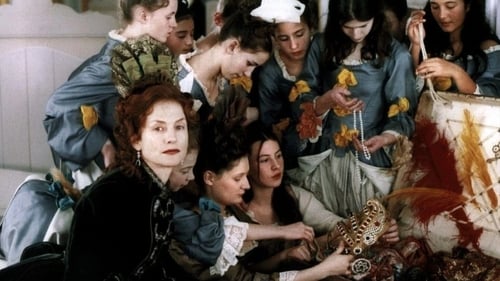
Director of Photography
Late 17th Century: Anne de Grandcamp and Lucie de Fontenelle, two little girls from Normandy, arrive at the Saint-Cyr school founded by Madame de Maintenon for educating the daughters of impoverished nobles ruined in wars and making them into free women. Madame de Maintenon is the secret wife of Louis XIV, and empowered by his support, she offers "her" two hundred fifty girls a playful and avant-garde education. Anne and Lucie, two inseparable friends, allow themselves to be carried away by the promise of a bright future. But Maintenon has arrived at the pinnacle of power through scheming and debasing herself and she now fears the fires of hell. She is counting on her model school to atone for her past sins.
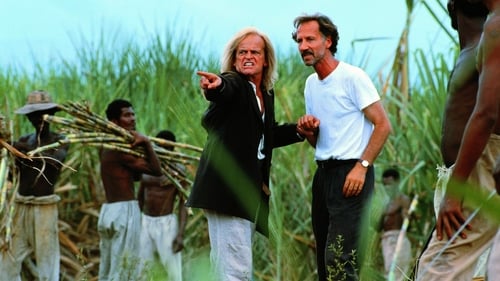
Self (archive footage)
A film that describes the love-hate relationship between Werner Herzog and Klaus Kinski, the deep trust between the director and the actor, and their independently and simultaneously hatched plans to murder one another.

Director of Photography
Sweety Barrett is a giant of a man with the mind of a child. An easy target in a corrupt world, Sweety becomes embroiled in a smuggling operation unleashing a spiral of dangerous and unexpected events.
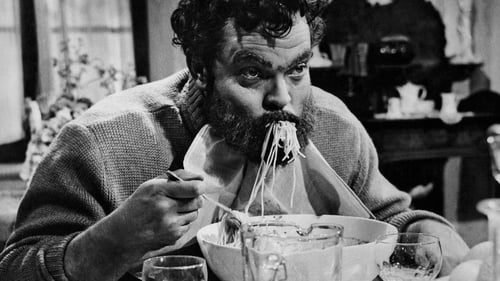
Cinematography
Orson Welles' archives of unfinished/never released movies and the last years of his life from the perspective of Oja Kodar (life and artistic partner of Orson Welles in his last years).
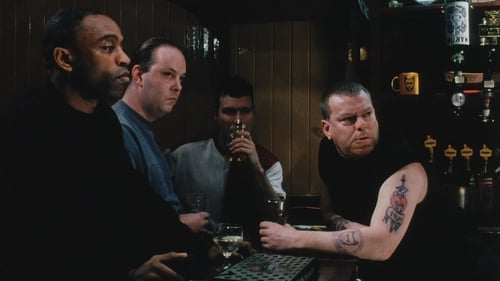
Director of Photography
Four policemen go undercover and infiltrate a gang of football hooligans hoping to route out their leaders. For one of the four, the line between 'job' and 'yob' becomes more unclear as time passes . . .

Cinematography

Director of Photography

Cinematography
Poetic documentary about the deconstruction of a railroad track in South Germany.

Director
Poetic documentary about the deconstruction of a railroad track in South Germany.

Cinematography
For many years the old Waller worked as a railwayman. After Waller is informed that "his" track will be closed down and that he will be retired, he walks the route for one last time and starts to remember his life along the way: Beginning in his childhood in the 1920s, he commemorates the death of his great love as well as he recalls the legal battle with his illegitimate daughter.

Director
Katja Junge plays the title role in this West German romantic drama, directed by noted cinematographer Thomas Mauch. Maria is just as girl who can't say "Nein," thus she goes through several lovers before the plot proper gets underway. When Maria finally falls in love for real, it is with repressed astronomer Robert Duessler. Afraid to make physical contact, Duessler prefers to gaze at Maria from a distance through his telescope. Not surprisingly, the film's title translates to Mary of the Stars.

Self
Making-of documentary that covers "Cobra Verde," Herzog's last film with Kinski before Kinski's death.
This is the documentary that registers the behind the scenes moments of "Cobra Verde", the last project that united director Werner Herzog to actor Klaus Kinski.
The notorious and infamous relation between the two filled Cinema theatres with masterpieces, but also filled pages of Cinema History with mutual declarations of both love and hate.

Director of Photography
The Distant Land (German: Das weite Land) is a 1987 Austrian-German drama film directed by Luc Bondy. It was screened in the Un Certain Regard section at the 1987 Cannes Film Festival. Based on a play by Arthur Schnitzler, which is generally referred to in English as The Vast Domain and was also adapted by Tom Stoppard as Undiscovered Country.

Director of Photography
Celebrated West German director Alexander Kluge presents this drama that strings together vignettes of events taken from everyday newspaper headlines. Germans are shown in their reactions to World War II, minorities, and the elderly. A side plot follows a meeting between former West German Chancellor Helmut Schmidt and East German leader Erich Honecker.

Self (archive footage)
An autobiographical short film by Werner Herzog made in 1986. Herzog tells stories about his life and career. The film contains excerpts and commentary on several Herzog films, including Signs of Life, Heart of Glass, Fata Morgana, Aguirre, the Wrath of God, The Great Ecstasy of Woodcarver Steiner, Fitzcarraldo, and the Les Blank documentary Burden of Dreams. Notable is footage of a conversation between Herzog and his mentor Lotte Eisner, a photographer. In another section, he talks with mountaineer Reinhold Messner, in which they discuss a potential film project in the Himalayas to star Klaus Kinski.

Director of Photography
A poignant film essay about 'superfluous people' facing up to a moment of crisis in their lives.

Director of Photography
The ultimate answer to all your problems: a slap in the face.

Director of Photography
The Cold War is peaking again in divided Germany in the early 1980s. How to deal with the upcoming nuclear annihilation shows this Alexander Kluge short.
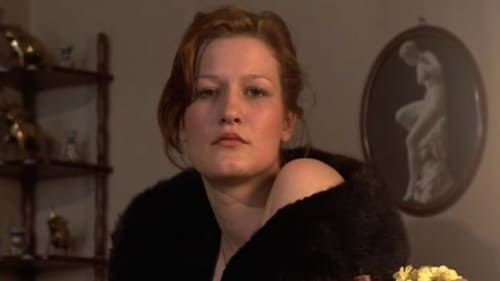
Director of Photography
The emotion and feelings should not be confused with sentimentality. Emotion is ancient and more powerful than any artistic expression. The film observes young couples face difficulties while trying to move their love experiences clear decision making. A film full of ideas, details and associations, fictional scenes, documentary footage, archival materials and opera music.

Director of Photography
Reverend Huie Rogers is a preacher at the Bible Way Church of Our Lord Jesus Christ in Brooklyn. He is the topic of this short film, during which launches into an epic call-and-response denunciation of human hubris, greed, corruption and failure. The use of lengthy shots present it less like a sermon and more a performance, and induce an almost trance-like state.
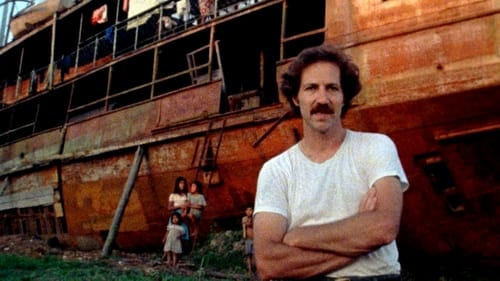
Self - DOP
The Amazon rain forest, 1979. The crew of Fitzcarraldo (1982), a film directed by German director Werner Herzog, soon finds itself with problems related to casting, tribal struggles and accidents, among many other setbacks; but nothing compared to dragging a huge steamboat up a mountain, while Herzog embraces the path of a certain madness to make his vision come true.

Director of Photography
The third episodical film, after Deutschland im Herbst and Der Kandidat, in which notable German film makers reflect on the state of their country.

Director of Photography
Fitzcarraldo is a dreamer who plans to build an opera house in Iquitos, in the Peruvian Amazon, so, in order to finance his project, he embarks on an epic adventure to collect rubber, a very profitable product, in a remote and unexplored region of the rainforest.

Director of Photography
Doctors say that Veronika, a woman in her 20s, is schizophrenic. She is compliant, which makes her an easy target for men. She's religious, believing she is God's favorite child; she searches for Jesus. She has sent a letter to a filmmaker suggesting her life as the subject for a movie. We see her raped then take up with a series of men she believes are Jesus, each willing or insistent on sex. A young man with his own crisis of faith invites her to join a cult. We see her involuntarily committed to an asylum from time to time where medication and constraints await. Her wealthy parents are helpless. Will a medical professional ever talk to her? If one did, would it help?

Cinematography
The documentary follows Gene Scott, famous televangelist involved with constant fights against FCC, who tried to shut down his TV show during the 1970s and '80s, and even argues with his viewers, complaining about their lack of support by not sending enough money to keep going with the show.
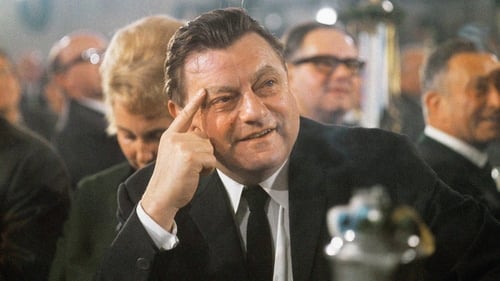
Director of Photography
Made with an eye to the autumn of 1980 when the German parliamentary elections took place, The Candidate examines Germany’s history past and present and Franz Josef Strauß, the man who, as the CDU/CSU candidate, aspires to be elected to the most important political office in the land.
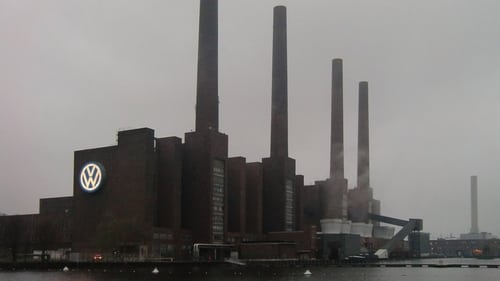
Director of Photography
An impoverished young man from Sicily travels to Wolfsburg, West Germany to find work. He takes a job in the Volkswagen factory after he travels through Northern Italy by train.

Producer
An impoverished young man from Sicily travels to Wolfsburg, West Germany to find work. He takes a job in the Volkswagen factory after he travels through Northern Italy by train.

Cinematography
Gabi Teichert, a history teacher, is unhappy with the way history is portrayed in textbooks and is looking for an alternative, more practical approach to 'uncovering' the past, quite literally digging with the spade and dissecting books with hammers and drills.
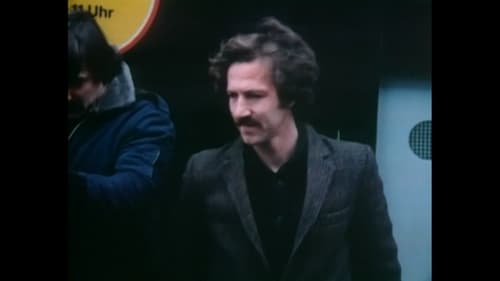
Self
Interview film with German director Werner Herzog revisiting the films he made up to ca. 1977.

Director of Photography
Cahiers du cinéma critic Serge Daney asks whether The Kingdom of Naples is "leftist fiction, kitschy melodrama, photo-roman, a decadent chronicle of a city, opera in a minor key, or simply the first realistic narrative film by Schroeter?" It is all of these and more: an epic chronicle of proletarian family life in Naples from 1943 to 1972 that brilliantly captures the wretched poverty, overwrought passions, and political, religious and economic upheavals of Sicily across two generations. Schroeter assimilates neorealist aesthetics and class sympathies with the tempestuous excesses of popular melodrama, borrowing freely from Rossellini, Pasolini, Visconti, Brecht, and Rossini. (Facets)

Director of Photography
The life and struggles of the German writer Heinrich von Kleist.
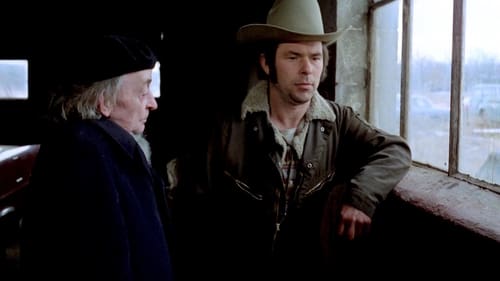
Director of Photography
Bruno Stroszek is released from prison and warned to stop drinking. He has few skills and fewer expectations: with a glockenspiel and an accordion, he ekes out a living as a street musician. He befriends Eva, a prostitute down on her luck and they join his neighbor, Scheitz, an elderly eccentric, when he leaves Germany to live in Wisconsin.

Producer
Erika and Franziska haven't seen each other for 4 years. 10 years earlier they both felt that they had the same chances in life: both were young, attractive and imaginative. They overlooked what would, right from the outset, separate them: their very different emotional make-up, their different character. In a long nighttime discussion the friends try to clear up these differences - not without some glimmer of hope.

Director of Photography
Erika and Franziska haven't seen each other for 4 years. 10 years earlier they both felt that they had the same chances in life: both were young, attractive and imaginative. They overlooked what would, right from the outset, separate them: their very different emotional make-up, their different character. In a long nighttime discussion the friends try to clear up these differences - not without some glimmer of hope.

Director of Photography
A documentary short examining the language and performance of auctioneering, filmed at the World Livestock Auctioneer Championship in Pennsylvania.

Director of Photography
The clownish security chief of a West German business is obsessed with protecting his factory from fancied and real breaches, especially from groups such as The Red Army Faction. Ferdinand's paranoia and methods can't be contained by his company. The sympathetically-drawn Ferdinand's ludicrous actions recall those of the cynical, disastrous axis between fascism and big business in 1930's Europe: satire of the rise of private security.

Director of Photography
In order to be reunited with Mahmood (Ören), a man she was promised to as a young girl, 20-year-old Shirin (Erten) leaves the life she had in a small village in Turkey in search of him.
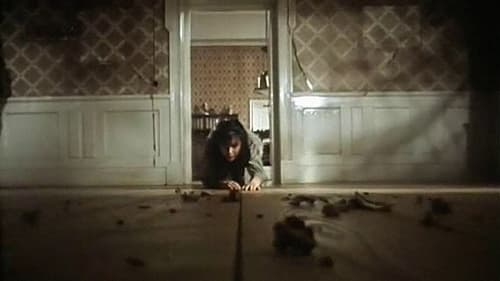
Cinematography
An adaptation of Franz Kafka's classic story about Gregor Samsa, a man who awakes and sees himself suddenly turned into a repulsive insect.

Director of Photography
West Berlin, 1974. The revolution didn't happen like it was supposed. Grischa, a 30-year-old actress dissatisfied with standard left-wing politics, interviews working women to find out how they deal with being both mothers and members of society.

Director of Photography
Roswitha runs an illegal abortion clinic in Frankfurt to support her student husband and children. When she is forced to close her practice she delves into political and social activism.

Director of Photography
Short by Alexander Kluge.

Director of Photography
A few decades after the destruction of the Inca Empire, a Spanish expedition led by the infamous Aguirre leaves the mountains of Peru and goes down the Amazon River in search of the lost city of El Dorado. When great difficulties arise, Aguirre’s men start to wonder whether their quest will lead them to prosperity or certain death.

Director of Photography
Outer space in 2034 is run by greedy corporations in a rundown bureaucracy. Two astronauts, who are not very smart, make their way with shady dealings, smuggling and spaceship wrecking.
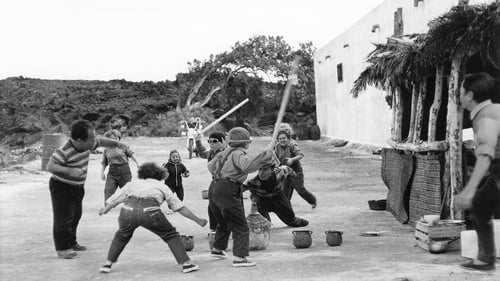
Director of Photography
The inhabitants of an institution in a remote country rebel against their keepers. Their acts of rebellion are by turns humorous, boring and alarming. An allegory on the problematic nature of fully liberating the human spirit, as both commendable and disturbing elements of our nature come forward. The film shows how justifiable revolt may be empowering, but may also turn to chaos and depravity. The allegory is developed in part by the fact that the film is cast entirely with dwarfs

Director of Photography
The Flying Doctors of East Africa (German: Die Fliegenden Ärzte von Ostafrika) is a 1969 documentary film by Werner Herzog about the "flying doctors" service of the African Medical and Research Foundation in Tanzania, Kenya, and Nairobi.

Director of Photography
The Indomitable Leni Peickert is a loose, half-hour sequel to Alexander Kluge's second feature film, Artists in the Big Top: Perplexed. This shorter work, seemingly assembled from leftover footage from the longer film, continues the story of the circus owner Leni Peickert after she first abandoned her idea of a radical circus in favor of a job in television. It opens where the previous film left off, at a TV station where Leni and her friends have gathered as employees, attempting to infiltrate the corporate establishment with their own revolutionary ideas. This radicalism is somewhat undercut by the way that Kluge deliberately shoots down the low-cut blouse of one of these young revolutionaries, the camera eyeing her cleavage and then panning down, to the text she's reading, and then back up again, finding her sexuality ultimately much more interesting than her radicalism.
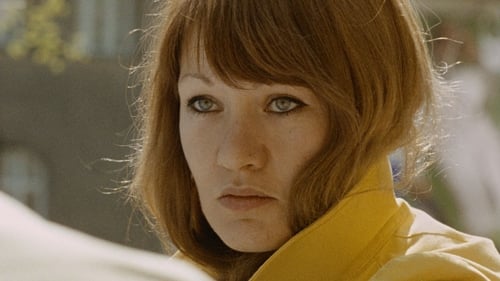
Producer
Katharina and Anne go on trips, visit cafés, acquaintances and parties. In doing so, they explore the chances of female emancipation in a male-dominated society. Katharina strives for a life without sentimental compulsion. She believes that she has succeeded, and therefore looks at the beloved friend Anne compassionate, as it can be good. Anne is learning the left jargon. But it is sheer helplessness. She says it's political commitment that she does not trust her friend Katharina, so Anne smiles as well.
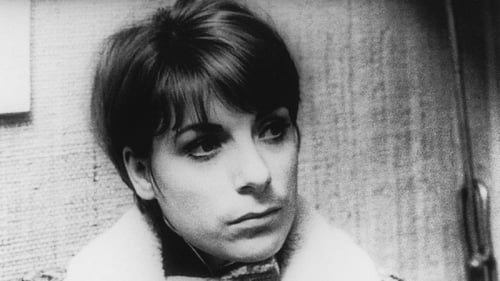
Director of Photography
A young circus director ends up going into television after her father, a trapeze performer, dies in a circus accident.

Director of Photography
During World War II, three German soldiers are withdrawn from combat when one of them, Stroszek, is wounded. They are assigned to a small coastal community on the Greek island of Kos while Stroszek recuperates. The men become increasingly stir crazy in their uneventful new assignment. Stroszek eventually goes mad.
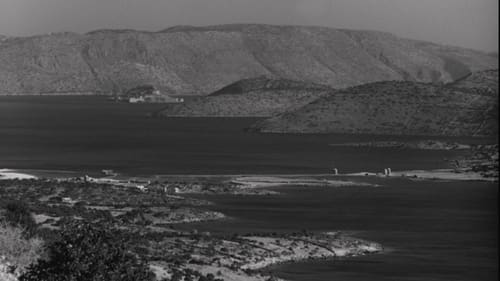
Cinematography
Early short by Werner Herzog shot while being on location in Greece shooting "Lebenszeichen".

Director of Photography
Kluge’s short-film starring his sister/muse Alexandra.

Director of Photography

Director of Photography
In 1966, German film critic Theodor Kotulla — who would go on to become one of the New German Cinema's most uncompromising filmmakers — visited the set of Robert Bresson's "Mouchette" (1967) and created this half-hour documentary about the director. It won the 1967 German Film Award for best short documentary.

Cinematography
Short by Edgar Reitz.
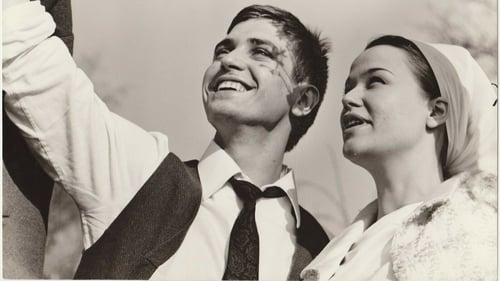
Director of Photography
Elizabeth is a young woman who seeks happiness excessively burning out all those around her.

Director of Photography
A young German woman searches for happiness, liberation, and independence in the illusive wake of a transformative national recovery.

Cinematography
A short montage about rhythm, movement, and speed.

Cinematography
Early documentary by Edgar Reitz.
















































